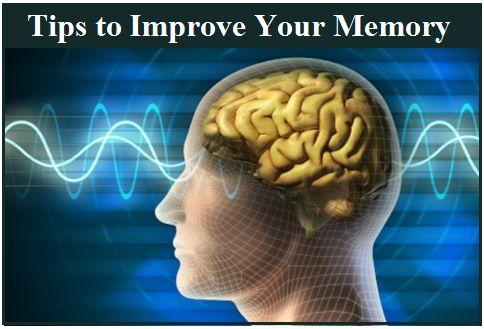We are part of an education system, where there are multiple subjects and a vast curriculum that students have to learn for complete their desired courses and education. To cover everything, sharp brain power and learning capacity are important. Not all are blessed with a sharp memory, some have to work for it. With good memory power, not only academic success is guaranteed but also overall work efficiency and productivity of the students is enhanced. Let us discuss some of its advantages.
- Fasten the learning process.
- Increases the learning capacity of learners.
- Reduces the chances of forgetting, mistakes and errors.
- High academic performance
- Boosts analytical and logical thinking among the learners.
- Improves class participation and engagement.
- More confidence level.
- Better future job opportunities
By reading the benefits, we can see how important it is to have sharp memory power. Let us discuss some tips which teachers can use in the classroom to help students in this regard. Also, we will be discussing a few more effective techniques which students can follow to make their memory better and sharp.
What teachers can do?
-
- Ask them to stress less: a lot of time students do not have a sharp brain power because they stress a lot. A mind occupied with overthinking and negative thoughts become less effective in terms of memory and power. Therefore, asking students to focus more on learning rather than stressing and overthinking must be practised by the students. Often students keep thinking about what will come in the exams, how they will perform, whether they will be able to complete the syllabus, and much more. Instead of that, teach the students to focus more on learning and stay positive. A positive mindset is more active and effective in functioning.
- Give Short tasks to learn: short tasks are easy to learn and achieve. If you will assign students a bulk of information to learn, they won’t be able to remember it for a long period. But at the same time, giving short tasks to learn can be permanently stored in the mind of the students. Also when students accomplish these short learning tasks, their confidence level is boosted and they feel motivated to do better in learning.
- Note-making in classes: only orally learning everything is not enough to make memory strong and sharp. Written exercises are best to memorise and retain information better. When we write something in our own words, our understanding and comprehension both are increased. Ask students to make notes in classes. Either the teacher can themselves dictate the points to the students or after completing lecturing can give some time to the students to jot down the pointers from their understanding. You can ask students to make notes while self-learning as well.
- Teach via visualisation: our mind understands better by seeing something. Along with teaching from textbooks, teachers can also use some modern visual and audio aids to teach students. With the help of this technique, students understand better. With a good understanding, students can remember and retain lessons for longer. This way their long-term memory is sharpened. Teachers can use any education app to access the tools such as presentations, modules, picture cards, short movies, animations, audio lessons, educational videos, and much more.
Steps to follow for students
- Make learning easy for yourself: many students find learning from textbooks and guides difficult. This difficulty level obstructs the memorising capacity of the students. The difficult things cannot be learned and retained easily. Therefore, students should try to make learning easy and interesting for themselves. The best idea in this regard is to use an education app.
Today with the growing technology, several apps, and online content are available that are more engaging for students as compared to the regular textbooks. Students can use a variety of tools such as PowerPoint presentations, modules, educational videos, flashcards, picture cards, animations, and graphs. Also, audio lessons, quizzes, riddles, and puzzles are available to make self-assessments and learning easy and engaging.
- Regularly meditate: meditation is a very helpful exercise to make our brain focus and concentrate better. It is a very soothing, calming, and relaxing process that helps students to overcome all the stress and learn better. Therefore every day, five to ten minutes of mediation is very helpful for all.
- Eat well, sleep well: our brain is not a machine. It also needs rest to perform actively throughout. All students must have a sleeping period of six to eight hours daily. Along with this eating healthy is also very important. Ensure having a diet that consists of all the healthy nutrients.
Conclusion
To achieve success in academics as well as in the future, students need to have good memory power. Since students spend a lot of time in classrooms, the above-mentioned techniques can be used by teachers to improve their brain efficiency. We also read some tips which students can follow in this regard.



















